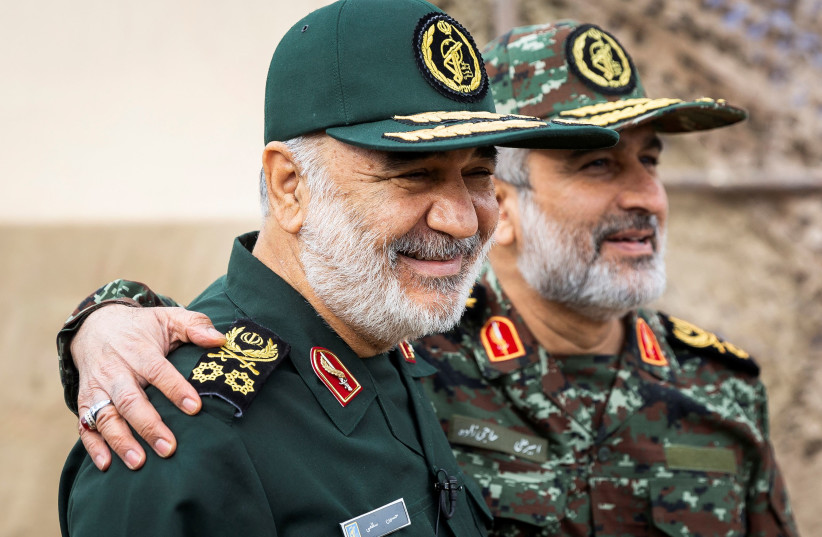Israel has bolstered its air-defense batteries in the North out of concern that Iran, which blames it for the death of an Islamic Revolutionary Guard Corps (IRGC) colonel, may launch a retaliatory attack.
The defense establishment is concerned that Tehran might carry out a missile or drone attack from Lebanon or Syria. Various air-defense systems and the soldiers who operate them have been placed on high alert, KAN News reported.
The IDF did not comment on the report.
IRGC attacks on Israelis
The IRGC and its Quds Force have for years been involved in countless attacks targeting Israelis and Jews around the world. They have also been involved in striking targets across the Middle East with their arsenal of combat drones.
Iran has launched numerous drones and other unmanned aerial systems toward Israel since 2018. Two Shahed-136 drones headed for Israel were downed in February by US fighter jets close to Erbil in the Kurdistan Region of Iraq.

The increased number of attempts by Tehran has placed the danger posed by such systems among the top five threats facing the IAF.
Identifying and intercepting hostile drones sent by Hezbollah in Lebanon, Hamas in the Gaza Strip, or Iran is challenging due to their being small and flying low, the IAF has said.
The IRGC’s commander, Maj.-Gen. Hossein Salami, on Monday vowed to avenge the death of Col. Hassan Khodayari, who was assassinated outside his Tehran home last week in an attack attributed to Israel. He was shot several times in his car by two individuals who fled on a motorcycle.
“The foes chased him door to door from the heart of the White House and Tel Aviv for years until they martyred him in a corner in Tehran,” Salami said during a visit to Khodayari’s family, adding that “those martyrs assassinated by the Zionists have a higher status because they have been killed by the worst people on earth.”
Whomever the Zionists kill, ascends to a higher level because his murderers are the worst humans.
IRGC Chief Hossein Salami
Khodayari reportedly commanded Unit 840 of the IRGC’s Quds Force. It is a relatively secret unit that builds terrorist infrastructure and plans attacks against Western targets and opposition groups outside Iran. He was also involved in planning attacks on Jews and Israelis worldwide.
The IRGC said the assassination was a “criminal terrorist act of the counter-revolution and elements related to global arrogance,” terms often used to refer to the US and Israel.
Also on Monday, the National Security Council issued a heightened travel warning against Israelis traveling to Turkey.
“There is an increased concern in the defense establishment that there will be Iranian attempts to harm Israelis around the world [since the assassination],” it said.
The National Security Council also extended the heightened level of travel caution to countries bordering Iran: Armenia, Azerbaijan, Iraq, Turkmenistan, Afghanistan, Pakistan and Turkey.
The United Arab Emirates and Bahrain, which have had an increase in tourism due to the normalization agreements signed as part of the Abraham Accords, were also listed.
Israelis were told to increase their vigilance when traveling and to refrain from identifying themselves as Israelis while in public.
